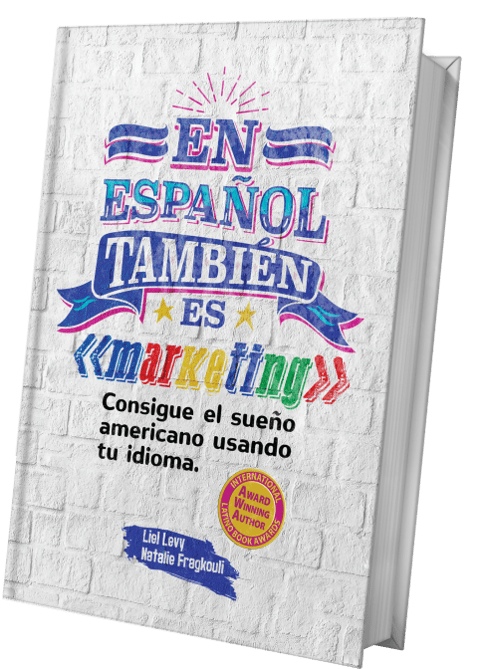Today, we’ll dive into the complex world of Google Ads, we’ll explore the main challenges law firms face with their PPC campaigns, and we’ll develop actionable tips for success in legal PPC.
Think of paid search in general, and Google Ads precisely, as a marketplace, where demand determines prices. Then, take into consideration that more businesses are nowadays investing in digital marketing. Finally, add to the equation the bidding process that determines the Cost Per Click, and the position of your law firm’s ad in the Search Network. You can understand that we’re describing a competitive environment, but this doesn’t mean you can’t succeed. On the contrary, if you identify and tackle the main challenges, make strategic decisions, and avoid mistakes that cost, you can thrive with your legal PPC, increasing your caseload with a substantial return on investment.
- Keep your message clear and appealing
Searchers are looking for results that answer their queries. Ads are no different; they should be appealing and relevant to the question asked. What does this mean? Your Ad Copies should be carefully written and proofread.
- Your headline should include keywords that are relevant to the search query.
- Your path field is probably the second most important location in your ad, make sure you make it appealing. Remember that id doesn’t have to match the destination URL.
- Your description should give an overview of what your law firm is offering and why you are better than your competitors in your practice area. Make sure that you add the appropriate call to action.
Tip: Did you know that Hispanics present a great opportunity for your Law Firm? They represent over 18% nationwide, and they tend to click more often on paid ads. A Nielsen report shows that about 80% of Latinx in the USA consider the internet a great way to gather information on products and services they consider to buy and proceed to the desired action (call your law firm or fill out a form).
Remember that competitor research for PPC is part of the process, and you shouldn’t miss the opportunity to understand what other law firms are doing great. At the end of the road, your goal is to get more signed clicks with the lowest possible budget. Aim for the highest possible quality score that will allow you to get the best return on your investment.
2. Landing pages
Consider that your Ads make it to the top, and you start getting valuable clicks. Where do you send your prospective clients? Is it your homepage? If it is, take a step back, read, and understand why you need to change this immediately. Let’s say that you are an attorney handling Worker’s Compensation and Bankruptcy. What does your homepage look like? It probably gives a general overview of your practice, and from there, the visitor can navigate through the different pages. Can it work? No. Your landing pages have to be specific. If, for example, you are showing Google Ads for chapter 7 bankruptcy cases, the searcher who clicks on one of them should go to a dedicated page, with a clear message, and a prominent call to action.
Tip: Landing pages need to be fast. Make sure that they take less than 3 seconds to load.
Remember: If you want to attract Spanish speaking clients, you have to be ready to talk culturally in their language.
3. Understanding your data and metrics
One of the many benefits of PPC is that you can start generating new leads from the moment you switch your campaigns on. No matter if you are just starting with legal Search Engine Marketing, or you’ve been in it for years, you need to monitor results. What brings you today to the top spot of the search network ads, or in the local pack ads, might change tomorrow. Did another competitor enter the market? Did someone else outbid you? Did your law firm start losing on quality score compared to another attorney who tweaked his campaigns? Google Analytics will give you powerful insights about your website, and your Google Ads dashboard is full of valuable metrics.
- Cost Per Conversion
It’s your Ad Spend/ Conversions. This is the first indicator allowing you to tell which campaigns are performing well. You can measure the actual cost for each new conversion, and you can compare your campaigns. It might be worth increasing your budget for a specific one, or you could need to make changes to another to yield better results.
- Conversion Rate
It’s as simple as dividing your conversions by clicks. Paying attention to this metric will allow you to understand how often each campaign converts. Based on the results you see over time, you will be able to get an understanding of the areas that you need to reevaluate and potentially alter. A new call to action or a different, fresh message could be the solution.
- Search impression share
In other words, how often your law firm’s Ad shows on the top of the page. First of all, keep in mind that you need to give your Ads some time. Don’t panic if you see a low impression share. Keep track of this metric, as it might point you to areas of improvement. A low impression share might ask for higher Ad relevance and Quality Score. Another factor for consideration could be your budget; you could alter your bidding strategy and increase your budget to see the effects on performance.
- Direct conversions
Sometimes a searcher might not even visit your website before converting. How is this possible? We’ve explained it all in our article about Google Call Ads for attorneys, and the Search Network Extensions. If you are using them (and you should be), this is a significant metric for you, as it lets you identify any leads coming straight from the Ad, and you can understand their value to your campaigns.
We, at Nanato Media, believe that data analytics are essential for any successful digital marketing strategy. Thus, we’ve created our Lead Tracking Dashboard, where you can keep track of all your leads, mark the quality, and even listen to your call recordings.
4. Make the most out of your budget
How can you get the most cases with a given budget? This is probably one of the most important questions an attorney can ask to his legal digital marketing team. Here are our tips:
- Research your keywords and target those who show high intent. A generic search term like “lawyer in Boston” could be very expensive to target, but not as effective as a high intent one, such as “personal injury attorney near me”. Those two keywords could have a similar CPC, but the first one could be part of a research that is not related to a case, while the second could lead to a phone call on the spot.
- Work on your negative keywords list. What such a list does is preventing your ads from being triggered by certain words or phrases. Negative keywords differ from a practice area to the other, and between places, so we’d suggest you conduct thorough research on terms you should avoid.
- Protect your brand name. If you search for your law firm’s brand name on your Google Ads planning tools and you find out that Google has attributed a CPC, it means that somebody else is showing ads over your organic listing. While this is permitted by Google, if they are respecting the terms of service, it means that you are potentially losing clients. Make sure that you make the most out of your brand by adding a campaign in your strategy. Google will understand your authority and attribute you to the highest scoring, meaning that you will end up being the top paid result without having to spend as much as your competitors.
- Go bilingual. In most cases keywords in Spanish are cheaper than in English. So a click for abogado de lesiones personales cerca de mi will cost you less than a personal injury attorney near me. Based on our experience, we’ve noticed differences of up to 50%. What’s even more interesting is that US Hispanics are mobile power users, and considering that mobile search shows high intent, they can be the ideal prospective client for your law firm.
Let’s move on to our takeaways.
- Your message should be fresh and appealing. Pay attention to every part of your Ad Copies, proofread them, test them, and tweak them whenever needed to get the most out of your budget.
- Your Ads should be linking to specific landing pages and not your generic website. They need to be fast, include a prominent call to action, and be relevant to your ad topic and language.
- Understand your data and metrics. They will signal what’s working or not and why. Based on them you’ll be able to make strategic decisions and optimize your campaigns.
- Optimize your budget and make the most out of your ad spend. Don’t let your guards down on your brand, research your keywords and the negative keywords list, and invest in Hispanic Legal Digital Marketing.





